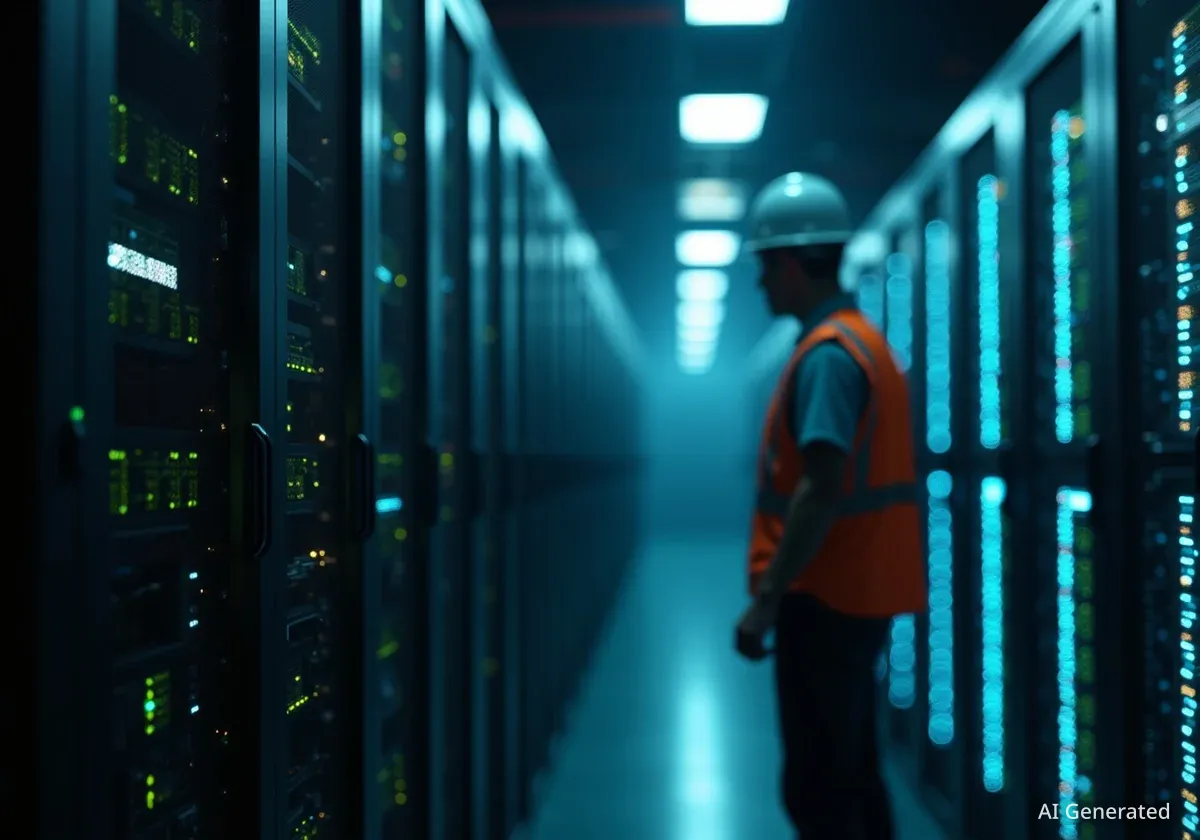A nationwide surge in the construction of AI data centers is facing significant local opposition across the United States. Communities from Michigan to Missouri are raising concerns about the immense power and water consumption of these facilities, leading to legal battles, development moratoriums, and a growing skepticism toward the promised economic benefits.
In Saline Township, Michigan, a dispute over a proposed 250-acre data center highlights the escalating tension. The developer, Related Digital, sued the township after it attempted to block the project. The township ultimately settled, securing concessions on water use and local investments, but the case exemplifies a pattern of community pushback against the resource-intensive demands of the AI industry.
Key Takeaways
- Local governments in states like Michigan, Missouri, and Ohio are increasingly challenging new AI data center projects.
- Primary concerns include massive electricity and water consumption, which can lead to higher utility bills for residents.
- Cities are enacting moratoriums and permanent restrictions to pause or halt data center development.
- The promise of tax revenue and jobs is being weighed against the long-term strain on public resources and infrastructure.
The High Cost of Power and Water
The core of the opposition to AI data centers stems from their operational requirements. These facilities house thousands of powerful servers that run 24/7, consuming vast amounts of electricity for processing and additional power for cooling systems to prevent overheating. This sudden, massive demand can strain local power grids.
Residents and officials are questioning who will bear the cost of the necessary grid upgrades to support these energy-hungry facilities. According to reports, rising wholesale power prices are already a concern in areas with a high concentration of data centers, such as Pennsylvania. The fear is that the financial burden will be passed on to residential and small business customers through higher monthly utility bills.
Water usage is another critical point of contention. Many data centers use water-based cooling systems, drawing millions of gallons from local sources. In regions already facing water scarcity, this level of consumption is viewed as unsustainable and a direct threat to community resources.
Why Data Centers Need So Much Power
AI models, especially large language models, require immense computational power for both training and operation. This is performed by thousands of specialized processors (GPUs) packed into server racks. These processors generate significant heat, necessitating robust cooling systems that also consume large amounts of energy. The combined power draw of a single large-scale data center can be equivalent to that of a small city.
A Pattern of Local Resistance Emerges
The conflict in Saline Township is not an isolated incident. Across the country, local governments are taking action to protect their resources and communities from the potential negative impacts of data center proliferation. This resistance is taking various forms, from outright cancellations to preventative legislation.
Missouri Enacts a One-Year Ban
In St. Charles, Missouri, the city council unanimously passed a one-year moratorium on data center construction. The move came after developer CRG, backed by an undisclosed tech company, proposed a 440-acre facility near several municipal wells.
Local officials and residents grew frustrated when the developer reportedly failed to provide clear answers regarding the project's expected water consumption and noise levels. One constituent described the company's approach as an attempt to "shove [the project] down the people’s throats." Following the public outcry, CRG withdrew its application, and the city council swiftly enacted the temporary ban to review its policies.
Ohio Town Limits Future Development
Lordstown, Ohio, provides another example of shifting local sentiment. The town initially welcomed a Softbank investment to repurpose a former General Motors plant, which closed in 2019, to manufacture data center components. This was seen as a positive step for the local economy.
However, when OpenAI's recent announcements suggested the possibility of a full-scale data center being built on the site, the mood changed. The city council responded by issuing a permanent restriction on the construction of new data centers, while allowing the existing Softbank project to proceed. This decision reflects a willingness to accept related industrial activity but a clear reluctance to host the large-scale, resource-intensive facilities themselves.
Industry Investment Soars
Despite local resistance, investment in the AI and data center industry remains massive. In recent weeks alone, deals and investments in the sector have been valued at approximately one trillion dollars, signaling a continued push for expansion by major tech companies.
Economic Promises Versus Community Realities
Developers often promote data centers as a source of significant economic benefits, primarily through tax revenue and job creation. However, communities are beginning to scrutinize these claims more closely. While the construction phase does create temporary jobs, the long-term employment opportunities are often limited.
Once operational, data centers are highly automated and typically require a relatively small staff for maintenance and security. This has led many to question whether the promised economic upside justifies the long-term strain on public utilities and the potential for environmental impact.
"Although data center investments bring in tax revenue and oftentimes direct investment in local initiatives, the tide is quickly turning against tech companies, particularly in the last few months," noted a recent report from the Washington Post on the growing trend.
Furthermore, noise pollution has become a tangible issue. In Memphis, Tennessee, residents have protested an xAI data center that uses natural gas turbines to power its servers, creating substantial noise. These real-world consequences are making the abstract promise of tax revenue a harder sell for local officials and their constituents.
As the AI industry continues its rapid expansion, the conflict between technological ambition and community well-being is set to intensify. The outcomes of these local battles will likely shape the regulatory landscape for data center development across the nation for years to come.





